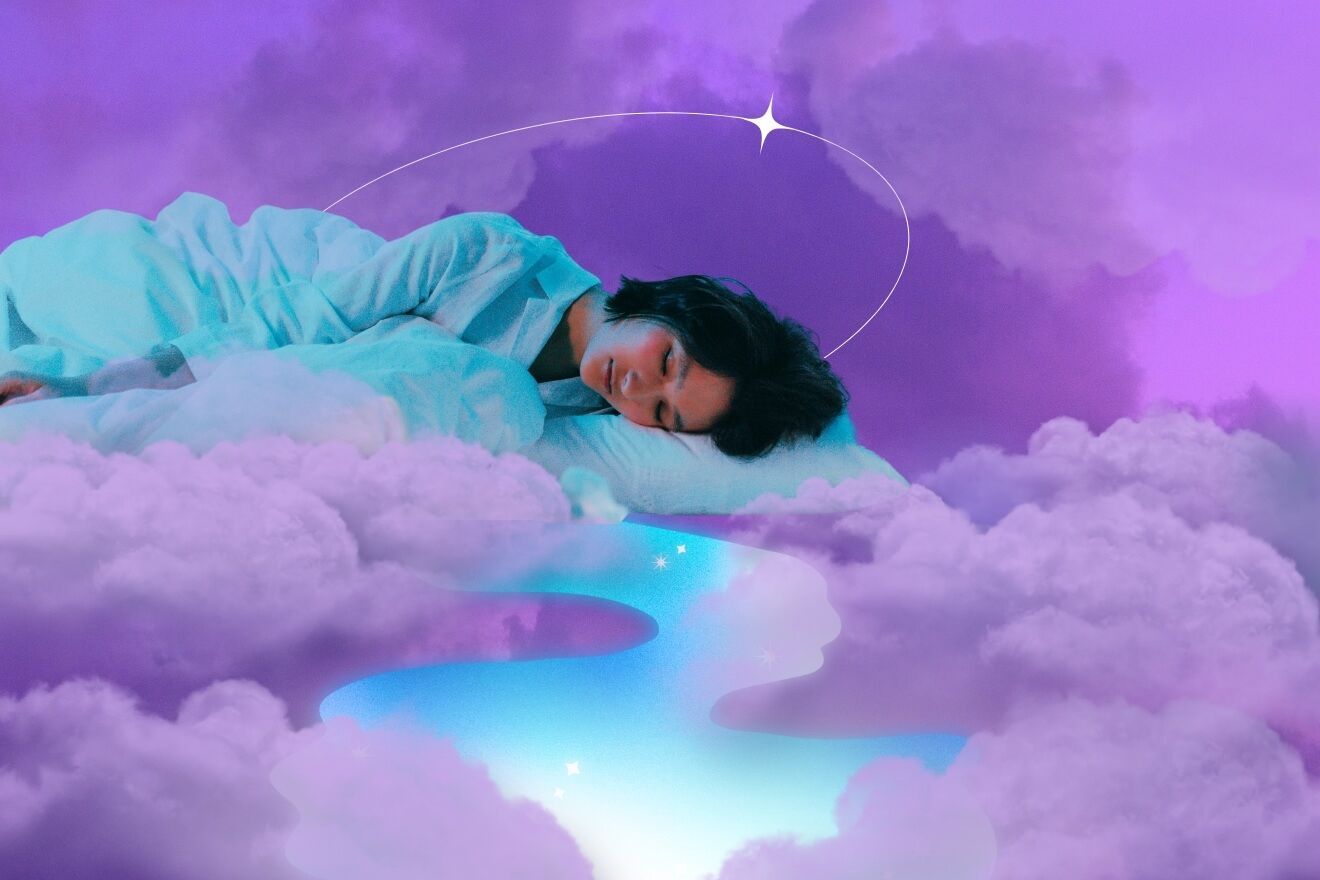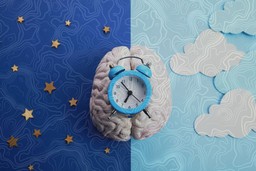Sleep is a crucial part of maintaining a happy and healthy life.
It’s not just for human beings. Almost all animals on the earth require sleep for proper biological function. It is estimated that 70 million Americans suffer from a sleep disorder. These include insomnia, circadian rhythm sleep-wake disorders, parasomnias, obstructive sleep apnea, narcolepsy, and restless leg syndrome.
A poor night’s rest does not only translate to a grumpy and tired morning. Insufficient sleep in the long term has been shown to be associated with adverse health outcomes. Among these are a higher risk of developing a heart attack, type II diabetes, obesity, depression, and anxiety.
A lack of sleep puts your immune system in danger, increasing your risk of catching viruses and other illnesses. In addition, without proper rest, your memory and cognitive function decline, impacting your ability to learn, think and process information.
Can psychedelics influence sleep? Can they play a role in improving the quality of our sleep, allowing us to rest better, longer and deeper? Read more to find out the latest on the relationship between psychedelic substances and our sleep.
Psilocybin
There are a couple of studies that looked at the effect of psilocybin and sleep.
A Potential Role Of Psychedelics In Sleep Regulation
Psilocybin therapy has been shown to improve symptoms of depression due to its serotonergic agonist properties. Common effects experienced during a psilocybin session include feelings of expansiveness and connection with the universe, ego dissolution, visual distortions, introspection, and insightfulness.
Similar to antidepressant drugs, psilocybin may induce neuroplasticity and have an effect on sleep architecture. Neuroplasticity is the brain’s ability to change, grow and reorganize in response to new stimuli.
A randomized, double-blinded study looked at how psilocybin affects sleep on the night after ingestion of the psychedelic.
The researchers hypothesized that psilocybin would decrease the rapid eye movement (REM) stage of sleep and increase sleep latency (the amount of time it takes for a person to enter REM).
Lastly, the researchers wanted to understand whether psilocybin induced neuroplasticity such as the effect seen in antidepressants. Therefore, they hypothesized that psilocybin would increase slow-wave activity (SWA) which is an indicator of sleep-related neuroplasticity.
It included a small number of participants. A total of 20 healthy adults received either psilocybin or a placebo in two separate sessions. The results aligned with two of their hypotheses: REM sleep latency was prolonged, and there was a reduction of REM sleep.
However, no significant associations were found between psilocybin and SWA, indicating no effect on the induction of neuroplasticity. The researchers suggest that there may be other factors involved with the antidepressant properties of psilocybin that the study did not consider. These may include different timing, dosage and effect of homeostatic regulation of sleep.
The study concluded that the antidepressant potential of psilocybin may have a role in sleep regulation.
No Effect of Psychedelics on Memory Consolidation During Sleep
Anyone who has studied for an exam knows that good quality sleep can do wonders for their performance, help strengthen their learning, and help them retain information better. Not getting enough sleep can impair memory function.
It is not understood how psilocybin affects memory consolidation during sleep, which may have risks for therapeutic use in clinical settings. A placebo-controlled, double-blind, crossover design study included 20 healthy participants to examine memory consolidation of learned material immediately and a night after an acute psilocybin session.
No significant associations were found between psilocybin and spatial or verbal memory consolidation. Psilocybin neither improved nor worsened memory consolidation. The researchers concluded that their findings helped to validate the safety of psilocybin for clinical and laboratory use.
Ayahuasca
Ayahuasca is a plant medicine brew that contains the psychedelic indole N,N-dimethyltryptamine (DMT). DMT has been shown to have serotonergic properties and act as a partial agonist at 5-HT(1A) and 5-HT(2A/2C) receptor sites. Serotonin is involved in regulating the sleep-wake cycle.
A study looked at how ingestion of ayahuasca during the day affected sleep. A group of 22 healthy male participants were given either an ayahuasca dose of DMT, a positive control (d-amphetamine), or a placebo. Sleep parameters were measured using polysomnography (PSG), spectral analysis, and subjective sleep quality.
In the PSG and subjective results, ayahuasca did not decrease sleep quality. On the contrary, d-amphetamine was shown to decrease sleep quality, and increase both sleep disruptions and the proportion of light sleep.
PSG results showed that both ayahuasca and d-amphetamine reduced REM sleep and increased its onset latency.
Spectral analysis showed that both ayahuasca and d-amphetamine increased power (an indicator of sleep pressure) in the high-frequency range, predominately in stage 2 of sleep. The authors wanted to highlight that in the first night cycle, d-amphetamine decreased slow-wave sleep (SWS) power, whereas ayahuasca increased it.
The study concluded that ingesting ayahuasca in the daytime can significantly affect sleep parameters, specifically in the brain mechanisms responsible for modulating REM and SWS.
LSD
A preprint article published initial findings on a study that looked at microdosing LSD and sleep duration. The article has not been peer-reviewed or evaluated; however, the results show an interesting and promising trend.
The study was a phase 1 randomized controlled trial that included 80 healthy male participants. Subjects self-administered either 10 mcg of LSD or a placebo every third day for a period of 6 weeks. An activity tracker was used to measure sleep.
The results revealed that the intervention group had an additional 24.3 minutes of sleep per night compared to the placebo group. No significant differences were seen in the physical activity levels or in the amount of time spent in different stages of sleep between groups. The authors suggest that low-dose administration of LSD may have therapeutic effects for mood disorders that negatively affect sleep.
Learn more about the safety and mechanisms of action in microdosing by signing up for our course, Microdosing Psilocybin & LSD: What We Know So Far.
Ketamine
Ketamine is an anesthetic that provides sedation and pain relief. It can have psychedelic effects at higher doses. Several studies have shown that ketamine has a significant impact on sleep.
For instance, a study performed on rats showed that acute administration of ketamine can inhibit REM sleep, which contrasts the effect of chronic administration of ketamine. Another study showed that ketamine users (with or without ketamine use disorder) were more likely to experience poor sleep quality compared to healthy controls and craving which mediated the relationship.
Can Psychedelics Influence Sleep and Treatment-Resistant Depression?
A 2023 systematic review looked at the effect of ketamine on sleep for those with depression. A total of five studies were included with two studies reporting significant sleep improvements post-administration of intravenous ketamine and intranasal esketamine.
Two studies showed a decrease in night wakings and an increase in SWS and REM sleep. One case study showed a reduction of insomnia symptoms during a 3-month treatment with esketamine. The review concluded that ketamine may decrease sleep disturbances in those with treatment-resistant depression. That said, robust studies with clinical and experimental data on this effect are substantially lacking.
Therefore, it’s clear that psychedelics influence sleep—these substances impact the duration and quality of our sleep. Nonetheless, there is limited evidence that explains the mechanisms involved in their therapeutic effects, and whether there are any long-term implications on health outcomes.
Follow your Curiosity
Sign up to receive our free psychedelic courses, 45 page eBook, and special offers delivered to your inbox.References
Ahnaou, A., Huysmans, H., Biermans, R., Manyakov, N. V., & Drinkenburg, W. H. I. M. (2017). Ketamine: differential neurophysiological dynamics in functional networks in the rat brain. Translational Psychiatry, 7(9), e1237–e1237. https://doi.org/10.1038/tp.2017.198
Aleksander Kwaśny, Włodarczyk, A., Ogonowski, D., & Wiesław Jerzy Cubała. (2023). Effect of Ketamine on Sleep in Treatment-Resistant Depression: A Systematic Review. Pharmaceuticals, 16(4), 568–568. https://doi.org/10.3390/ph16040568
Allen, N., Jeremiah, A., Murphy, R., Sumner, R., Forsyth, A., Hoeh, N., Menkes, D., Evans, W., Suresh Muthukumaraswamy, Sundram, F., & Roop, P. (2023). LSD increases sleep duration the night after microdosing. BMJ Yale. https://doi.org/10.1101/2023.06.27.23291970
American Psychiatric Association. (2009). What Are Sleep Disorders? Psychiatry.org. https://www.psychiatry.org/patients-families/sleep-disorders/what-are-sleep-disorders
Barbanoj, M. J., Riba, J., Clos, S., Giménez, S., Grasa, E., & Romero, S. (2007). Daytime Ayahuasca administration modulates REM and slow-wave sleep in healthy volunteers. Psychopharmacology, 196(2), 315–326. https://doi.org/10.1007/s00213-007-0963-0
Deshong, A. (2022, December 13). Sleep Disorders. The Sleep Doctor. https://thesleepdoctor.com/sleep-disorders/
Dudysová, D., Janků, K., Šmotek, M., Saifutdinova, E., Kopřivová, J., Bušková, J., Mander, B. A., Brunovský, M., Zach, P., Korčák, J., Andrashko, V., Viktorinová, M., Tylš, F., Bravermanová, A., Froese, T., Páleníček, T., & Horáček, J. (2020). The Effects of Daytime Psilocybin Administration on Sleep: Implications for Antidepressant Action. Frontiers in Pharmacology, 11. https://doi.org/10.3389/fphar.2020.602590
Nikolič, M., Viktorin, V., Zach, P., Tylš, F., Dudysová, D., Janků, K., Kopřivová, J., Kuchař, M., Brunovský, M., Horáček, J., & Páleníček, T. (2023). Psilocybin intoxication did not affect daytime or sleep-related declarative memory consolidation in a small sample exploratory analysis. European Neuropsychopharmacology, 74, 78–88. https://doi.org/10.1016/j.euroneuro.2023.04.019
Suni, E. (2020, October 23). How Sleep Works: Understanding the Science of Sleep. Sleep Foundation. https://www.sleepfoundation.org/how-sleep-works
Yen, C.-F., Lin, H.-C., Ko, C.-H., Wu, H.-C., Hsu, C.-Y., & Wang, P.-W. (2020). Sleep quality among individuals with ketamine use and the mediating role of craving. Scientific Reports, 10(1). https://doi.org/10.1038/s41598-020-77631-9







